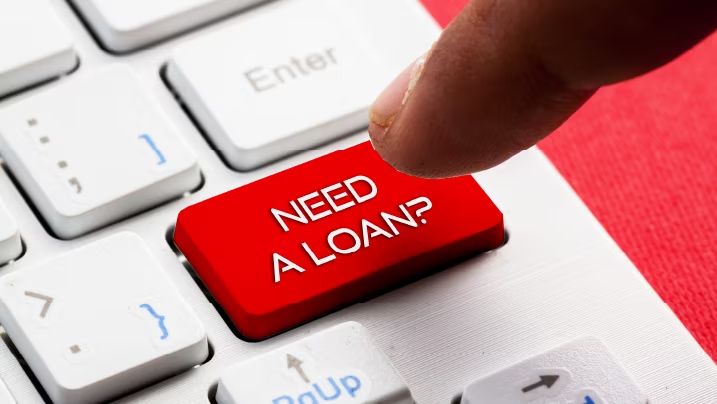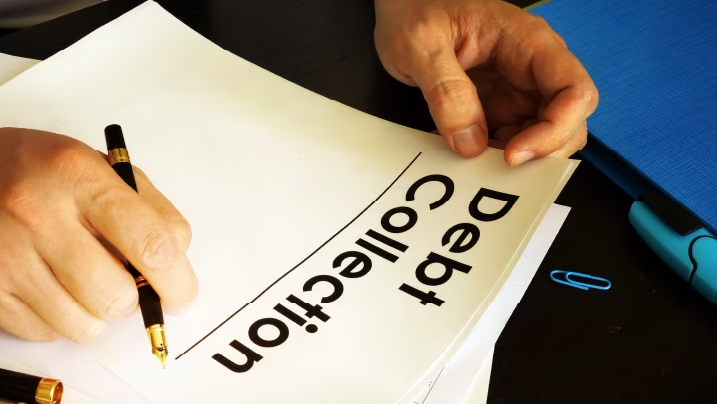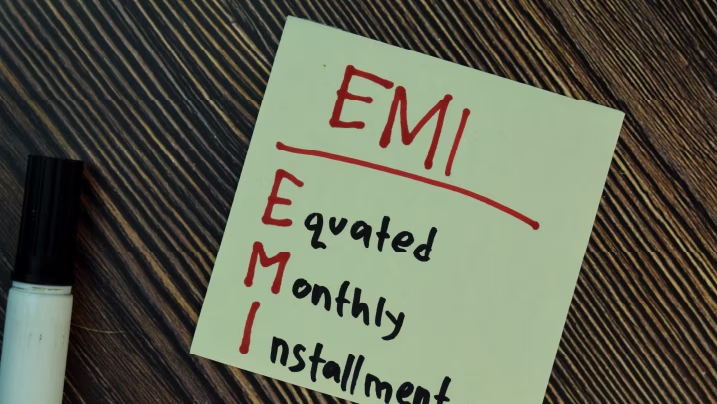Debt Consolidation For Personal Loans: What You Need To Know
personal loan
Summary: Personal loan debt consolidation can simplify your finances by combining multiple debts into one loan with a lower interest rate and more manageable repayment terms. Read on to find out more.
Debt can be complicated and burdensome, especially when it comes to multiple personal loans or EMIs with varying interest rates and repayment terms. This is where personal loan debt consolidation and other EMIs come into play. Consolidating your debts into one manageable loan can simplify your finances, save you money on interest and fees, and provide hassle-free repayment options.
However, this is not a universal solution and there are many factors to consider before deciding whether this solution is right for you. In this article, we highlight everything you need to know about personal loan debt consolidation to help you make the right decision.
What is Debt Consolidation?
Debt consolidation is the process of combining multiple debts into one loan or repayment agreement with a lower interest rate, smaller monthly payments, and longer repayment terms. Debt consolidation can be done in several ways, including taking out a personal loan, transferring credit card balances, or taking out a loan from a bank or other financial institution.
The idea behind debt consolidation is to simplify the way you pay your debts, make it easier to manage multiple debts, and save you money in the long run by lowering interest costs. By consolidating debts, you as a borrower can often lower your total monthly payments, which can help you pay off your debt more quickly and efficiently.
Types of Debt Consolidation
- Consolidation of Multiple Personal Loans Debt consolidation involves multiple personal loans (debts) being consolidated into a larger personal loan with one payment per month. Simplifies debt management while reducing interest rates. For example, if you have three personal loans with different monthly payments, interest rates, and maturity dates, it can be difficult to keep track of them. Debt consolidation allows you to take out a new personal loan to pay off all your debts. This means you only have one personal loan to manage, with one payment per month and one interest rate. This makes it easier to track your finances and helps you save money by lowering personal loan interest rates on some loans. Combine multiple credit card bills. This means combining all your credit card balances into one payment at a lower interest rate. Let’s say you have three credit cards with outstanding balances of Rs 50,000, Rs 75,000, and Rs 100,000 respectively. Different cards have different interest rates, so you’ll need help keeping your payments to a minimum. You can consolidate your debt and apply for a personal loan with a lower interest rate than a credit card. Once you are approved for a personal loan of INR 2,25,000, you can use it to repay all three credit cards. Now you only have one payment to make at a lower interest rate. Combining Two Types of Debt Let’s say you have three personal loans and two credit cards, and they both have different outstanding balances. Personal loans and credit cards have different interest rates and repayment terms. You’ve decided to consolidate your debt and apply for a personal loan with a lower interest rate than your current personal loans and credit cards. You have been approved for a personal loan, which you use to pay back all your accounts. You can also pay once a month at a lower interest rate. Example: If your total debt is Rs 11 lakh, but you are only eligible for a debt consolidation loan of Rs 9 lakh, you need to prioritize which loan you will repay first. One approach is to use available funds to pay off the highest-interest loans first to save on interest payments in the long run. For example, if the interest rate on your credit card debt is higher than a loan of IDR 7,000,000, you can use the money to pay off your credit card debt first. This will eliminate high-interest debt and lower your overall interest payments.It may be helpful to keep an Excel sheet or use a financial management tool to track your debts and payments. This will help you stay on top of your debt and track your payment progress.
- Consolidation of Multiple Personal Loans Debt consolidation involves multiple personal loans (debts) being consolidated into a larger personal loan with one payment per month. Simplifies debt management while reducing interest rates. For example, if you have three personal loans with different monthly payments, interest rates, and maturity dates, it can be difficult to keep track of them. Debt consolidation allows you to take out a new personal loan to pay off all your debts. This means you only have one personal loan to manage, with one payment per month and one interest rate. This makes it easier to track your finances and helps you save money by lowering personal loan interest rates on some loans.
- Combine multiple credit card bills. This means combining all your credit card balances into one payment at a lower interest rate. Let’s say you have three credit cards with outstanding balances of Rs 50,000, Rs 75,000, and Rs 100,000 respectively. Different cards have different interest rates, so you’ll need help keeping your payments to a minimum. You can consolidate your debt and apply for a personal loan with a lower interest rate than a credit card. Once you are approved for a personal loan of INR 2,25,000, you can use it to repay all three credit cards. Now you only have one payment to make at a lower interest rate.
- Combining Two Types of Debt Let’s say you have three personal loans and two credit cards, and they both have different outstanding balances. Personal loans and credit cards each have different interest rates and repayment periods. You’ve decided to consolidate your debt and apply for a personal loan with a lower interest rate than your current personal loans and credit cards. You have been approved for a personal loan, which you use to pay back all your accounts. You can also enjoy lower interest rates and monthly payments. Example: If your total debt is Rs 11 lakh, but you are only eligible for a debt consolidation loan of Rs 9 lakh, you need to prioritize which loan you will repay first. One approach is to use available funds to pay off the highest-interest loans first to save on interest payments in the long run. For example, if the interest rate on your credit card debt is higher than a loan of IDR 7,000,000, you can use the money to pay off your credit card debt first. This will eliminate high-interest debt and lower your overall interest payments. It may be helpful to keep an Excel sheet or use a financial management tool to track your debts and payments. This will help you stay on top of your debt and track your payment progress.
Read more: 6 tips on how to get a personal loan without hassle
Understand the process when consolidating loans from different banks.
- Find out exactly how much you need to pay off your personal loan/credit card debt. This will give you an accurate idea of how much you need to borrow from new sources to consolidate your debt. Consider other EMIs: If you have other EMIs due to a large loan like buying a car or house, consider these payments while combining your other debts. Make sure you have enough money to make all payments on time. Share all relevant details: Once you choose a new lender, you will be asked to share all the required documents, including proof of income, identity, and address. Keep fees in mind: Your new lender may only charge you principal and interest and no processing or prepayment fees. In this case, you will need to borrow enough to cover these costs or pay them out of your own pocket to keep the loan amount to a minimum. Submit a DD: Once your new personal loan is approved, you can get a Demand Draft (DD) that you can submit to your current lender to close each account. The DD amount may vary depending on the bank. Submit your DD within the specified time limit and avoid fines or late fees.
- Find out exactly how much you need to pay off your personal loan/credit card debt. This will give you an accurate idea of how much you need to borrow from new sources to consolidate your debt.
- Consider other EMIs: If you have other EMIs due to a large loan like buying a car or house, consider these payments while combining your other debts. Make sure you have enough money to make all payments on time.
- Share all relevant details: Once you choose a new lender, you will be asked to share all the required documents, including proof of income, identity, and address.
- Keep fees in mind: Your new lender may only charge you principal and interest and no processing or prepayment fees. In this case, you will need to borrow enough to cover these costs or pay them out of your own pocket to keep the loan amount to a minimum.
- Submit a DD: Once your new personal loan is approved, you can get a Demand Draft (DD) that you can submit to your current lender to close each account. The DD amount may vary depending on the bank. Submit your DD within the specified time limit and avoid fines or late fees.
Benefits of Personal Loan Debt Consolidation
- Simplifies Debt Management: Rather than managing multiple debts with different due dates and interest rates, a debt consolidation loan allows you to combine them into one easy-to-track monthly payment. Low interest rates: Debt consolidation loans offer lower interest rates compared to credit cards or personal loans, saving you money in the long run. Change your monthly payments: Debt consolidation loans have fixed monthly payments, which can help you budget and plan your money more effectively. Improve your credit score: You can improve your credit score over time by consolidating your debt and paying it on time. Avoid late fees: Late payments on credit cards or personal loans can result in high late fees. With a debt consolidation loan, you can avoid this situation by making payments on time. Reduce Stress: Dealing with a lot of debt can be stressful and stressful. Consolidating debt will make you feel more in control of your money.
- Simplify Debt Management: Rather than managing multiple debts with different due dates and interest rates, a debt consolidation loan allows you to combine them into one easy-to-track monthly payment.
- Low interest rates: Debt consolidation loans offer lower interest rates compared to credit cards or personal loans, saving you money in the long run.
- Change your monthly payments: Debt consolidation loans have fixed monthly payments, which can help you budget and plan your money more effectively.
- Improve your credit score: You can improve your credit score over time by consolidating your debt and paying it on time.
- Avoid late fees: Late payments on credit cards or personal loans can result in high late fees. With a debt consolidation loan, you can avoid this situation by making payments on time.
- Reduce Stress: Dealing with a lot of debt can be stressful and stressful. Consolidating debt will make you feel more in control of your money.
Read more: How to calculate bank interest rates for personal loans
Eligibility criteria
Eligibility requirements for debt consolidation loans vary depending on the lender and the type of loan you apply for. However, here are some general eligibility requirements for debt consolidation loans:
- Good Credit Score: Borrowers need a good credit score to qualify for a debt consolidation loan. Scores above 700 are generally considered good. Stable Income: You need to prove that you have a stable source of income to cover the monthly loan payments. Low debt-to-income ratio: Your debt-to-income ratio, which is the amount of debt you have compared to your income, is evaluated by the lender. A lower ratio indicates you have a manageable amount of debt. Employment History: Lenders may also consider your employment history to determine whether you have stable and reliable employment. Collateral: Some lenders may require collateral, such as a home, to secure the loan. Age and Citizenship: You must be of legal age and a citizen or permanent resident of your country when applying for a loan.
- Good Credit Score: Borrowers need a good credit score to qualify for a debt consolidation loan. Scores above 700 are generally considered good.
- Steady Income: You must prove that you have a stable source of income to make monthly loan payments.
- Low debt-to-income ratio: Your debt-to-income ratio, which is the amount of debt you have compared to your income, is evaluated by the lender. A lower ratio indicates you have a manageable amount of debt.
- Employment History: Lenders may also consider your employment history to determine whether you have stable and reliable employment.
- Collateral: Some lenders may require collateral, such as a home, to secure the loan.
- Age and Citizenship: When applying for a loan, you must be of legal age and a citizen or permanent resident of your country.
It is important to note that meeting these eligibility requirements does not guarantee personal loan debt consolidation approval. Lenders will also consider other factors, such as your overall credit history, before approving a loan.
Read more: Follow these rules when repaying a personal loan:
Factors to consider
Here are some factors to consider when deciding whether to consolidate debt for your personal loans:
- Interest Rate Fees/Costs Monthly Payments Credit Score Term Loan Lender Reputation
- interest rate
- Fees/Costs
- monthly payments
- balance level
- loan term
- lender’s reputation;
Read more: 4 ways to budget for a debt-free life
conclusion
Debt consolidation for personal loans can simplify your finances by combining multiple debts into one loan with a lower interest rate and more manageable repayment terms. Transfer your existing personal loan or credit card balance through IDFC FIRST Bank Personal Loan Debt Consolidation. Enjoy a variety of benefits, including competitive interest rates and flexible repayment options of 6 to 60 months, as well as a hassle-free online application process.
disclaimer
The contents of this article/infographic/image/video are for informational purposes only. The content is general and for informational purposes only. It is not a substitute for specific advice regarding your particular circumstances. Information may be updated, finalized, reviewed, verified, corrected, and may be materially changed. This information is not intended for distribution or use by anyone in any jurisdiction where such distribution or use would be contrary to law or regulation or which would subject IDFC FIRST BANK or its affiliates to any licensing or registration requirements. IDFC FIRST BANK is not responsible for any direct or indirect loss or liability incurred by readers due to making financial decisions based on the content and information mentioned. Consult a financial advisor before making any financial decisions.
The features, benefits and offers mentioned in the article are valid as of the date this blog was published and are subject to change without notice. The contents of this document are subject to other product-specific terms and conditions and third party terms and conditions, as applicable. Please refer to our website www.idfcfirstbank.com for the latest information.









